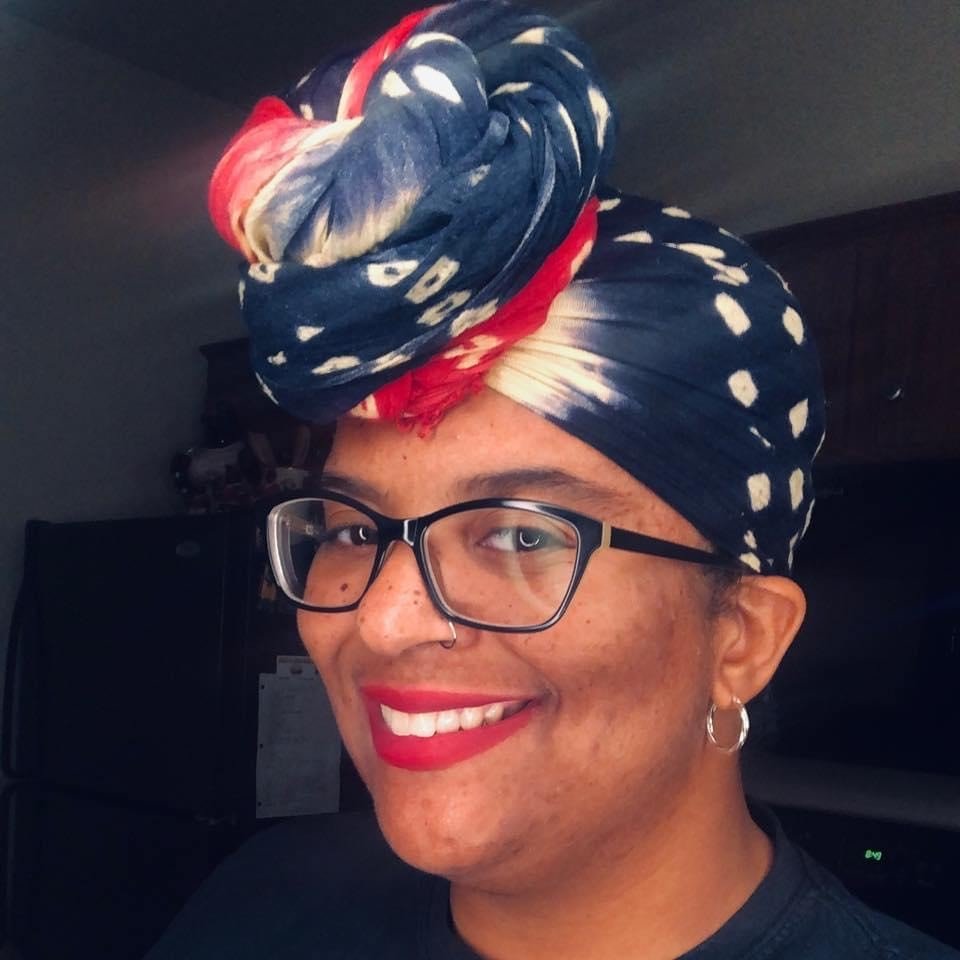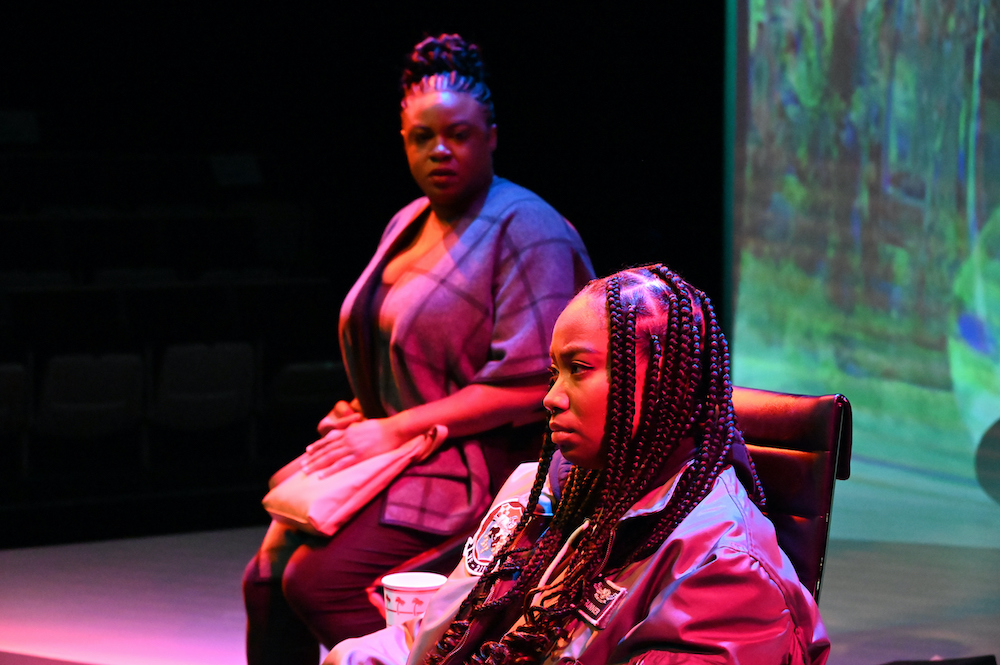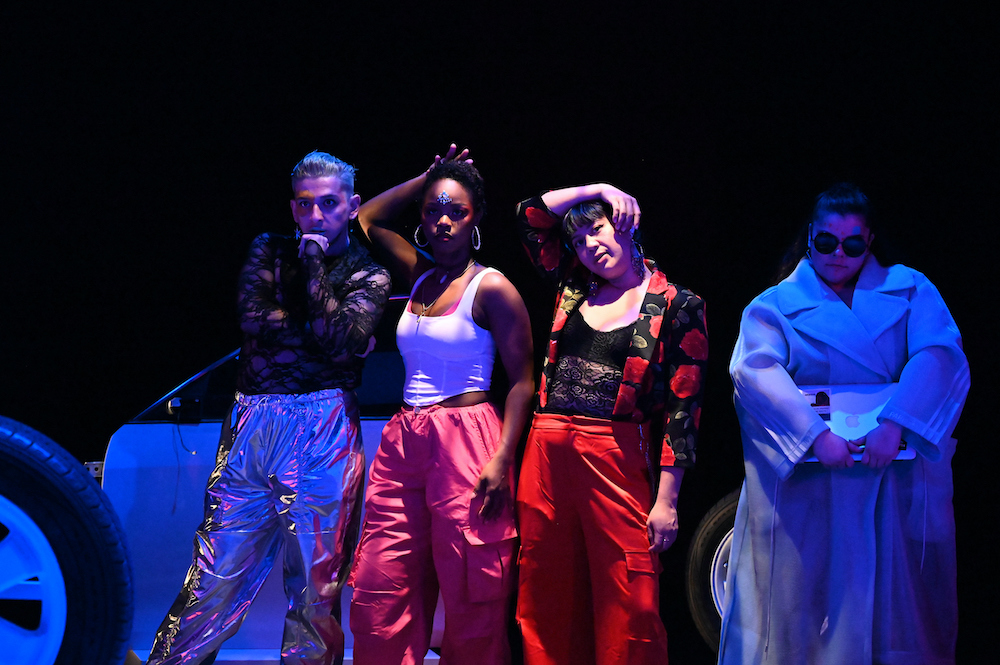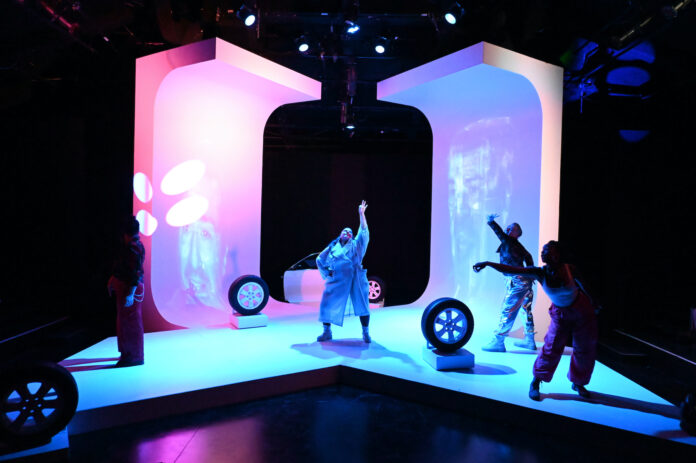Ever since playing the Major-General in The Pirates of Penzance in 5th grade, Ashley Smiley has been sold on theater. She enjoyed the product and the applause, sure, but she also loved working with a group of people to tell stories.
Smiley, now a member of the Campo Santo ensemble, is still telling stories. Her play, Dirty White Teslas Make Me Sad, opens at the Magic Theatre on March 2. Billed as both “honest and hilarious,” the play deals with the re-gentrification of San Francisco and the displacement of Black people through the story of Sloosh, who is looking for a way to stay in her hometown.
While at Lowell High School, Smiley did poetry slams with Youth Speaks, and directed, produced, and wrote original pieces with other teenagers about issues they faced as part of the Colored Ink, a hip hop theater collective.

“That could be as big as gun violence, teenage prostitution, or environmental injustice,” she said. “It could also be as basic as trying to figure out why it is that I went through four years of high school, and now in order to get out, I have to take a swim test.”
Smiley was already beginning to understand the kind of impact theater could make.
“I’ll never forget, we did a piece called Streets have Spoken. It was about the effects of gun violence, but not just the way people talk about gun violence on the news, really looking at the individual and human experience. And then having the Norteños that were right across the street come over and sit in the front row and cry, and be like, ‘We don’t want any of you guys to be a part of this life, and we see the impact, but it’s also this cycle.’ Building community that way and having conversations is what I loved and why I decided to be crazy enough to stick with it.”
Smiley got her BA at the University of San Francisco with a double major in performing arts and social justice with theology, before getting an MA in drama at San Francisco State University. She planned to be an attorney, figuring if she could sway an audience, she could sway a courtroom. Somewhat to the chagrin of her mother, she eventually stuck with theater.

“There was just something about being an attorney and doing all the law school stuff that felt like an opposite pole from the kind of impact I wanted to have,” she said. “I didn’t want my stage to be a courtroom, because a courtroom requires a punitive and criminal aspect. It requires people to be in a state of crisis, and I give it up to [lawyers], but it’s a lot of responsibility to be in that position. I like being able to have real conversations with people, and I like talking to people before they get to the courtroom. I found that performing arts was the way I could have real conversations with my community.”
At first, Smiley thought she’d have those dialogues as actor.
“The Bay Area is diverse and beautiful, but being a Black performer in San Francisco is very tough. There’s a lot of typecasting, there’s a lot of assumptions, there’s a lot of rejection,” she said. “I was seeing that we all just kept being the slave, we all kept being the maid or we all kept being the hyper-sexualized prostitute or the witch women, and we never got to be anything else. I was not really a fan of that.”
While she was working with Colored Ink at Brava Center for Women in the Arts, Smiley learned to do stage management, sound design, and production management. She started working with theaters like the African American Shakespeare Company and Intersection for the Arts, becoming, in her words, “the groupie who made it onto the tour bus.”
Smiley wants to keep telling stories about things that affect people’s lives, particularly people of color, and that’s what she’s doing with Dirty Teslas Make Me Sad. Growing up in San Francisco, Smiley had been witnessing the displacement of her neighbors, and she wanted to write about it. And regarding that title: At first, as a fan of technology, she liked Teslas, but then she started to think about them differently, and how they were part of changing San Francisco. While out with her mother one day, she saw something that impacted her.
“We were driving down Folsom, headed to the Bay Bridge, and we look up and it looked like this person drove their white Tesla through a riverbank or something. It was just filthy, and I was like, ‘dirty white Tesla’s make me sad,’ and my mom said, ‘Oh, that might be something. You might want to stick with that. That’s a pretty cool title.’ I just started looking at what it’s like to have this new influx of people that are changing the culture.”

Smiley also noticed how drugs was regarded differently when they were being consumed by rich people.
“It was a brand-new way of having conversations in relation to substance abuse, in particular when it dealt with Black and Brown people,” she said. “I found out that there are MDMA pills that have the Tesla logo on them. There’s actually one that’s kind of like a dirty off-white color, and people are saying it’s extremely dangerous, and I was like, ‘Oh, dirty white Teslas really do make me sad.’’’
Getting to work on her first play with other members of Campo Santa, including Magic artistic director Sean San José, performer Juan Amador, and designer Joan Osato meant a lot to Smiley.
“Then there’s my amazing fricking director, Raelle Myrick-Hodges, who is just the absolute best, and that makes a world of a difference in terms of feeling secure and reassured,” Smiley said. “I also know that they’re going to be honest and it’s not people blowing smoke, like, ‘Everything’s wonderful.’ These are the folks who also say, ‘Eww, no, cut it. You can move that around.’ That’s also needed and necessary. But they’ve definitely been great about holding my hand because I’m like, ‘I don’t know what I’m doing. This is so weird.’ And they’re like, ‘Girl, calm down. We’re going to make it happen. We’re doing it.’ So yeah, it’s been great and beautiful.”
DIRTY WHITE TESLAS MAKE ME SAD runs through March 17. Magic Theatre, SF. More info and tickets here.







